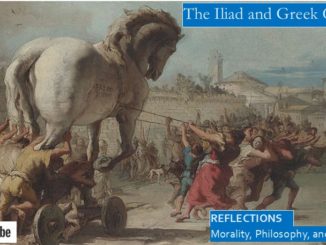It seems we can’t find what you’re looking for. Perhaps searching can help.
Nothing found
Latest Articles
-

What inspirations did JRR Tolkien draw from for his best-selling series The Lord of the Rings, and the Hobbit? Like his friend CS Lewis, Tolkien was an English Professor specializing in medieval and ancient literature and languages. When CS Lewis was contemplating whether to return to his Episcopalian roots, abandoning his youthful agnostic views, Tolkien argued that he should convert to Catholicism. CS Lewis resisted these pleas. IMHO, though CS Lewis was conducive to Catholicism, and may have even confessed his sins to a priest, he likely thought he would be more effective evangelizing through his books as an Episcopalian.
Both JRR Tolkien and CS Lewis fought in the trenches in France as British soldiers during World War I, they both lost many friends who fought beside them: they both experienced the horrors of war. Both were too old to serve in World War II, but this struggle against the evils of Naziism directly influenced CS Lewis’ Mere Christianity and Tolkien’s Lord of the Rings, both released shortly after the war. […] -

-

-

-

Popular Articles
-

Why should a Christian ponder the Iliad by Homer, the ancient saga of the Trojan War where Grecian and Trojan warriors fight with swords and arrows and shields, where the pagan gods of Mount Olympus support and fight with one side in the war, then the other? For three reasons, the first reason is the Iliad is a truly remarkable poem to experience. The second reason is the ancient world is not our modern world, the ancient world was a far more brutal world, the ancient world described in the Iliad is the same world described in the Old Testament, and to a certain extent the New Testament also. The third reason is every ancient state was a warrior state, and the Greek city-states were the most successful warrior states of their era. […]
-

-

-

-

